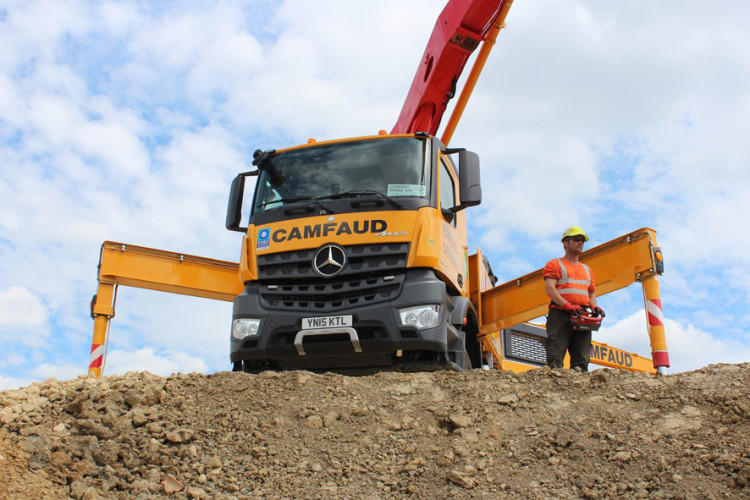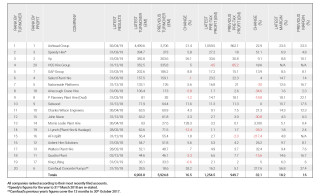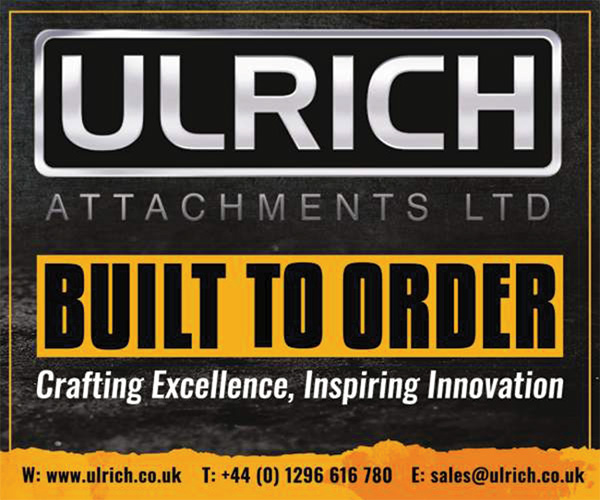Our sector analyses so far this year have combined to suggest that economic and political factors (yes, we mean Brexit) have stifled growth and affected profitability.
Business sectors as diverse as fit-out, road-building, M&E and demolition have all seen profitability suffer despite steady or increasing workloads.
So far this year only the utilities sector has registered significant growth in both turnover and profits, and that is largely due to the water industry’s infrastructure investment period, AMP6, peaking as it reaches the mid-point in the cycle.
Even the muckshifting sector, helped by major road, rail and energy projects feeding into the supply chain, showed mixed fortunes, with some contractors doing very nicely while others languish.
Then there’s plant hire, a very capital-intensive business where machine utilisation and cashflow are critical. This sector is one of the worst for aggressive price-cutting whenever economic crisis looms and work starts to dry up. But there’s no sign of that right now.
Despite widespread fears about the damage Brexit stagnation is doing to the UK economy, life in the plant hire sector not only goes on, it also flourishes.
This year revenues and pre-tax profits for our selection of the 20 leading companies in the sector are both up for the third year in a row – overall revenues are up by almost £1bn and pre-tax profits are up 32% to £1.3bn. It all suggests that workloads are growing vigorously and hire rates are holding up.
As previously, Ashtead Group sits at the top of the table with turnover and profit figures that dwarf everything else in sight: £4.5bn in turnover and over £1bn in pre-tax profits.
This is misleading, though, because it’s not A-Plant, Ashtead’s UK plant hire business, that’s doing all the work here. It’s Sunbelt, Ashtead’s US business which turned over £3.8bn and made an operating profit of £1.2bn in the year to April 2019, that swelled the coffers.
That’s not to say that A-Plant doesn’t deserve the top ranking – it certainly does. Turnover at the UK business was £475.1m (slightly higher than in 2017) putting A-Plant comfortably ahead of second-placed Speedy Hire.
“The UK market remains competitive and after a period of sustained growth for the business, the focus is now on operational efficiency and improving returns,” says the company.
Speedy’s well-publicised trading difficulties and boardroom bust-ups of a few years ago are now well behind it and the company is looking in good shape under the leadership of CEO Russell Down. Turnover in the year to 31st March 2019 was up almost 6% to £395m and pre-tax profit surged more than 50% to £27.2m.
Speedy is also back on the acquisition trail, looking for complementary businesses to enhance its offering. In December 2018 Speedy bought training group Geason, allowing it to offer “flexible, progressive training programmes to support customers across the UK”.
In 2017 Speedy added another string to its bow with testing and certification specialist Lloyds British. And it has bolstered its presence in the powered access sector with the takeover of Prolift and Platform Sales & Hire in 2018 and its most recent acquisition, Lifterz, in 2019.
Since Speedy’s return to health, the sick man of UK plant hire has been HSS, which has turned in substantial losses for the past three years. In the year to 31st December 2017 HSS made a pre-tax loss of £82.5m on turnover of £335.8m. But last year, following the appointment of a new CEO, Steve Ashmore, the company reduced that loss to a mere £4.5m. Turnover is marginally up, to £352.5m.

HSS is the only loss-maker in this year’s selection of the top 20 plant hirers, which differs from previous sector analyses. To present a more representative picture of the UK plant hire sector, we have omitted companies on the periphery of equipment rental – primarily scaffolding contractors and generator specialists whose end-markets or operational models differ significantly from those of most construction-focused machinery hirers.
Specialists are very much in the mix, however, and one of the notable newcomers to the top 20 is concrete pump hirer Camfaud which, since its acquisition three years ago by US-based Brundage-Bone Concrete Pumping, has grown substantially.
Much of this growth is the result of Camfaud absorbing other businesses that Brundage-Bone bought at the same time as Camfaud.
“On the 31st March 2018, the business, assets (including employees) and liabilities of South Coast Concrete Pumping Limited and Reilly Concrete Pumping Limited were transferred to Camfaud. This was part of a group simplification exercise to combine the businesses and to develop the nationwide service under the ‘Camfaud’ brand,” explained the company.
As a result, Camfaud’s turnover shot up from £18.6m in 2017 to £28.5m in 2018, an increase of over 53%. Pre-tax profits also surged, from £5.1m to £16.5m; Camfaud recorded an operating profit of £7.9m last year compared with £5.3m the previous year.
Another noteworthy addition to the top 20 is Morris Leslie, a rising star of the plant hire sector and, in contrast to Camfaud, very much a generalist, offering a wide range of products including excavators, dumpers, compactors, access platforms and telehandlers.
In the year ended 30th April 2018, Morris Leslie completed the integration of its acquisitions from HS Realisations – as poor old Hewden Stuart became known following its collapse at the end of 2016 – and the number of its depots had reached 12.
The company says: “The increase in turnover reflects the business growth and a full 12-month trading period for the new depots. In addition, asset sales out of stock increased by £17m year on year, contributing significantly to the increased turnover levels.
“The company continues to operate one of the youngest and fastest-growing hire fleets in the UK. During the year, a further £59m was invested in new assets (2017: £52m).”
The overall complexion of the UK’s plant hire industry looks undeniably rosy but not everybody enjoyed a bumper 2019. No review of the sector would be complete without acknowledging the sad demise of Hawk Plant, number 16 on our list of top 20 hire firms last year.
What did for Hawk Plant is what scuppered many a plant hire business in the past: the classic combination of rising debt and poor cashflow. The company was dealt a body blow by the collapse of Carillion in January 2018 and the business was left reeling: Carillion is understood to have owed Hawk almost £1m.
In September 2018, Steve Corcoran – former boss of Speedy Hire – was brought on board as chief operating officer with a remit to turn the business around. But the company was already passing debts from one division to another like so many hot potatoes. The sudden loss of a projected funding stream in late 2018 pushed the business over the edge.
This article was first published in the November 2019 issue of The Construction Index magazine
UK readers can have their own copy of the magazine, in real paper, posted through their letterbox each month by taking out an annual subscription for just £50 a year. Click for details.
Got a story? Email news@theconstructionindex.co.uk




